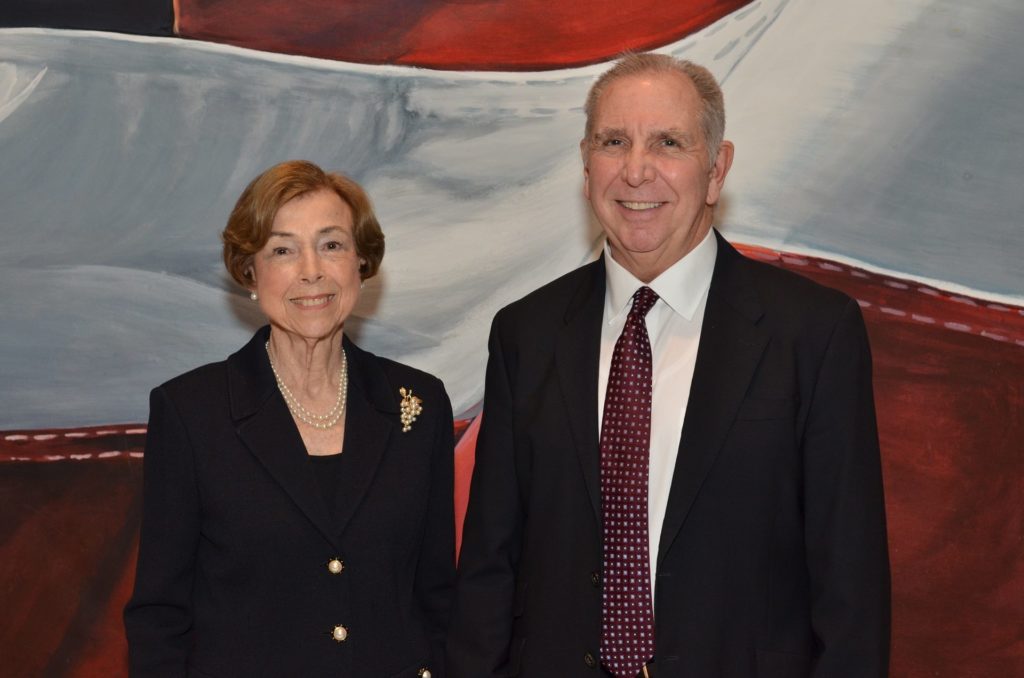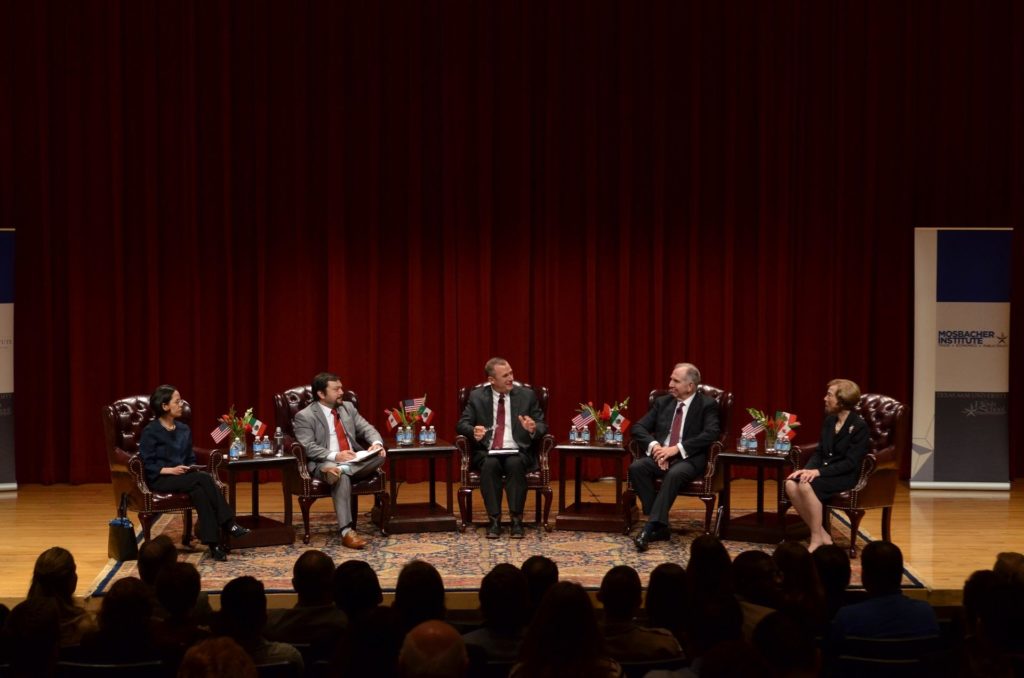NAFTA Negotiator Carla Hills, Texas A&M President Young Discuss The Trade Deal’s Future
With North American Free Trade Agreement (NAFTA) negotiations currently underway in Mexico, a panel of experts that included the landmark trade agreement’s original lead negotiator convened for a discussion at Texas A&M University’s Bush School of Government and Public Service to assess its success, failures and uncertain future Wednesday night.
“We do live in turbulent times, economically, politically and technologically, and these changes are affecting our bilateral, our domestic and our global relationships,” Hills said. “Global institutions that have helped create unprecedented peace and prosperity in the 70 years that followed World War II are under siege like never before.”
The panel for “NAFTA 2.017: Strengths, Weaknesses and Ways Forward” was headlined by Carla Hills, who served as U.S. trade representative in the George H.W. Bush Administration and chief negotiator for NAFTA, suggested modernizing the agreement for 21st century trade, assessed the current state of NAFTA and international trade. She said Brexit, the rise of nationalist parties across Europe and the 2016 U.S. election were signs of a backlash against globalization.
A February 2017 Gallup poll found that 46 percent of Americans viewed NAFTA as “bad for the U.S.” and 48 percent viewed it as “good for the U.S.”
Hills also offered potential fixes to the agreement, which included updating the more than 20-year-old agreement to get up to speed with advancements in technology. She also pointed out the mutual benefits of keeping tariffs low in the apparel, manufacturing and agricultural industries, among others.
“Contrary to the public posturing, neither of us can afford to lose the substantial economic benefits,” Hills said. “Any significant decoupling [of the U.S. and NAFTA] would be catastrophic economically.”
Texas A&M President Michael K. Young, who under the Bush administration worked extensively on NAFTA as part of the U.S. negotiating team, also joined the panel to discuss his experiences at the negotiating table and offer insights as to why a sizeable amount of people view the agreement unfavorably, particularly on the topic of Mexico at a time when a majority of Americans believe Mexico has benefitted the most from the agreement.
“Our tariffs were already comparatively low, so the interesting thing about NAFTA was seeing how much Mexico was willing to give up in order to engage,” Young said. “That was not widely known but it was important for a variety of reasons. It reflected the desire to create, in some stable way, the economic reforms that Mexico was undertaking so they weren’t simply subject to legislative whim, but they also were embedded in an obligation to other countries, so it would be unlikely to be walked back.”
Young added that in a time of skepticism, there must be an effort to ensure business owners see the benefit of NAFTA in order to ensure the agreement stays in place as are made.
“Our economy shifts and the consequences of that are significant,” Young said. “I think one of the challenges we face is that in order for this ultimately to be successful politically, the business community across the board is going to have to see some benefit and step up to do this, and that pressure is going to have to outweigh that of the 40 percent who think [NAFTA] has been bad.”
Hills and Young were joined by Alejandrina Salcedo, director of the Real Sector Research Area of the Banco de Mexico, Jesus Cañas Senior Business Economist, Federal Reserve Bank of Dallas and moderator Raymond Robertson, Bush School economics professor.
###
Media contact: Sam Peshek, 979-845-4680, sam.peshek@tamu.edu.






